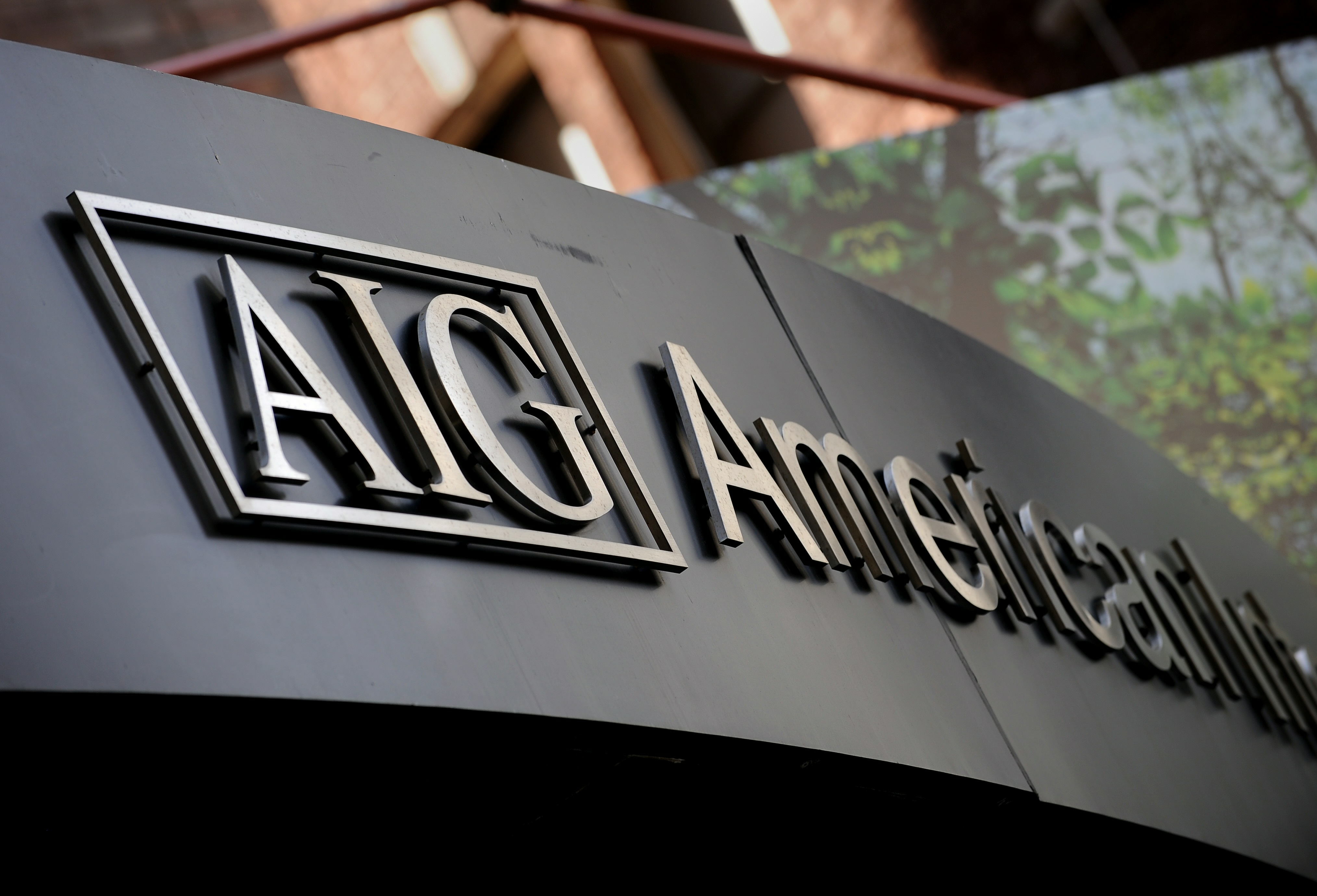Insurance giants American International Group (AIG) and Prudential Financial (PRU) Thursday signaled they could soon join MetLife and GE Capital in trying to shed their designations as threats to the U.S. financial system if they faced a crisis.
![AIG - TOO-BIG-TO-FAIL [image : 82484678]](http://www.gannett-cdn.com/media/2016/03/31/USATODAY/USATODAY/635950412747181995-AFP-FILES-US-INSURANCE-FINANCE-COMPANY-AIG.jpg)
The federal court decision that tossed out MetLife's (MET) too-big-to-fail designation this week "certainly opens that opportunity" for AIG, its CEO Peter Hancock told CNBC. Nonetheless, Hancock cautioned that AIG would "reserve judgment" and see how financial regulators interpret the decision before acting.
Asked by USA TODAY about joining the exodus effort, Prudential Securities spokesman said Scot Hoffman said: "We continuously review developments that impact our company, and we are evaluating what is in the best interests of the company and our stakeholders."
said: "We continuously review developments that impact our company, and we are evaluating what is in the best interests of the company and our stakeholders."
Challenges by the companies could prompt a shakeup of designations imposed after the 2008 financial crisis to safeguard the U.S. economy and financial system. The Financial Stability Oversight Council, a 10-member regulatory board created under the Dodd-Frank Wall Street Reform and Consumer Protection Act, designates companies deemed "systemically important financial institutions."
MetLife, GE Capital, AIG and Prudential, designated in 2013-2014, are the only non-bank firms the council added to the classification that also covers major banks with $50 billion in assets or more.
The designations subject the companies to stricter regulatory oversight, as well as requirements to hold higher capital reserves against losses, along with other restrictions.
![MetLife not too big to fail, judge rules [oembed : 82478540] [oembed : 82478540] [oembed : 82478540] [oembed : 82478540]](/Portals/_default/Skins/PrestoLegacy/CommonCss/images/smartembed.png)
Ruling on a 2015 federal court challenge by MetLife, District of Columbia Judge Rosemary Collyer Wednesday ordered the council's designation of the New York-based insurance giant's designation "rescinded." Her full opinion was sealed, pending an April 6 hearing whether any portions should remain secret.
The Department of the Treasury, the oversight council's government base, did not respond to an email asking whether the Obama administration plans to appeal the decision.
Instead of filing a similar lawsuit, GE Capital on Thursday filed what it said is the first-ever request asking the council to remove the Connecticut-based financial firm's too-big-to-fail designation.
![GE Capital: We're not too big to fail anymore [oembed : 82480620] [oembed : 82480620] [oembed : 82480620] [oembed : 82480620]](/Portals/_default/Skins/PrestoLegacy/CommonCss/images/smartembed.png)
GE Capital said it had reduced its size and financial risk by cutting assets 52%, from $549 billion to $265 billion, and becoming a "smaller, simpler" financial services firm that "does not pose any conceivable threat to U.S. financial stability."
Spokeswoman Susan Bishop said GE Capital is "working cooperatively" with the oversight council in hope the regulators "come to the decision we seek." She declined to address whether the company would sue if the council rejects the request.
A potential AIG effort to shed its too-big-to-fail designation would be complicated, because it received an $85 billion government loan and billions more in lines of credit that saved the company from collapse during the financial crisis. Hancock, however, noted in his CNBC appearance that AIG has since repaid the bailout, sold riskier divisions and refocused on core insurance business.
"I think that it's going to be important for people to focus on the substance of what we've done to de-risk the company, as opposed to simply the history" of AIG's near collapse, said Hancock.
![PRUDENTIAL FINANCIAL - TOO-BIG-TO-FAIL [image : 82485388]](http://www.gannett-cdn.com/media/2016/03/31/USATODAY/USATODAY/635950418946273206-AP-TERROR-THREAT.jpg)
New Jersey-based Prudential initially contested its too-big-to-fail designation in meetings with the oversight council but opted not to sue. However, the company has maintained its opposition.
"We disagree with the designation of Prudential as being systemically risky," CFO Robert Falzon told a Senate securities and insurance subcommittee hearing in April 2015. "There is an annual process that is provided to us post the designation, which allows us to petition against that designation. We have done that, and we will continue to do so."
Follow USA TODAY reporter Kevin McCoy on Twitter: @kmccoynyc


